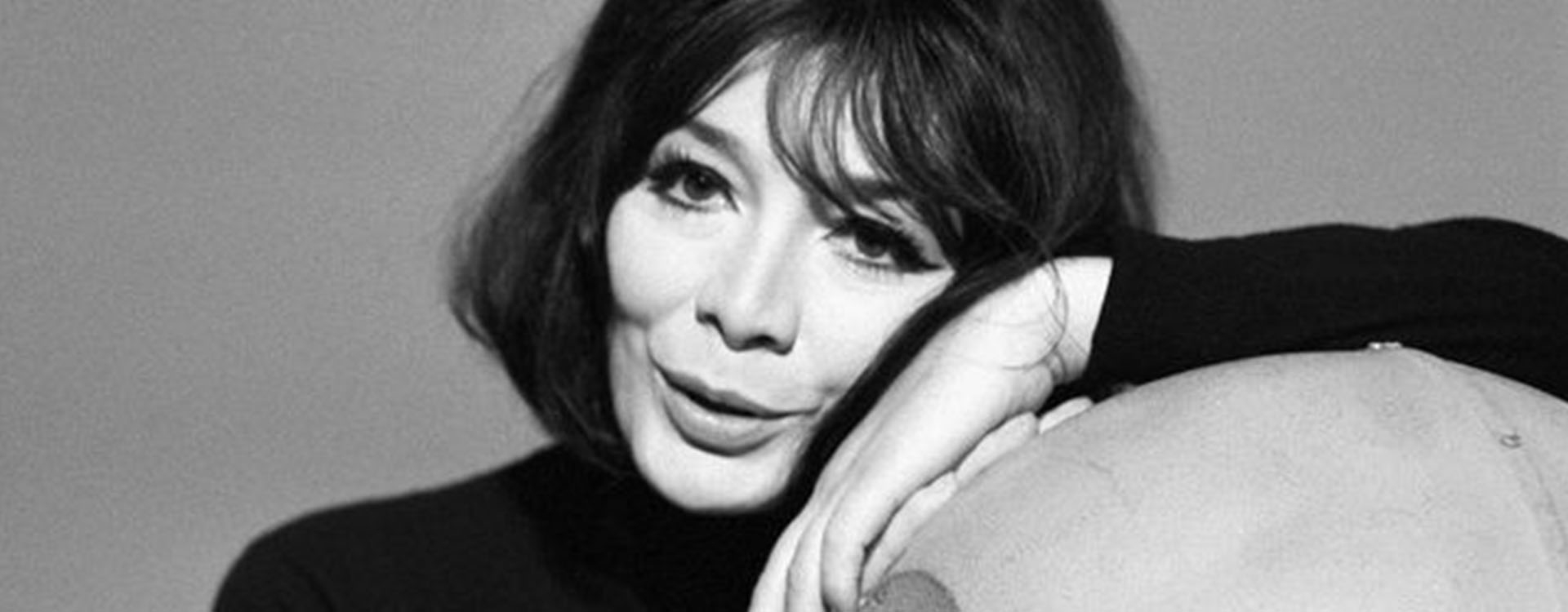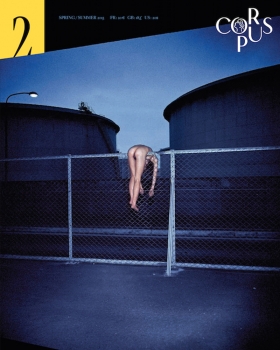Juliette Greco, the woman who made black trendy
Mehdi Meklat and Badrou Abdallah sat down for tea with Juliette Gréco, the existentialist icon turned charismatic leading lady of French song.
Daylight. The cold sky burdened with a beautiful whiteness. A stone village, a thousand leagues from anything, forsaken amidst the winds. The church-bell, at the time when the day fades away, jolts the frosted souls. The cabby says, “There’s only one reason to come all this way, and that’s to see Juliette Gréco.” She looks so pale, shrouded in a black shawl, as she opens the door. On the table rest her iPhone, some makeup and three cups of tea. The TV, blaring. “Who is…” She switches it off. The fire, over there in the hearth, crackles at its own pace. Juliette Gréco is a black-and-white icon, with boundless eyes, compelled to be free. She says, “No one knows who I am.” She’s 86 years old, with just as many lives behind her. She says, “I’m really pushing it as far as life is concerned.” A conversation.
And then one day, you became Juliette Gréco
I am Juliette Gréco, I was born that way, that’s my name, that’s my first name. Problem is, I was chosen. I would never have chosen me, not for anything in the world. I think I’m ugly, and I always will. I was really unhappy with my physique. Awfully complex-ridden. Saint-Germain-des-Prés, after the war, quickly became a crucible where all of the world’s talents came to mingle. And, inevitably, the photographers swarmed in, because wherever there’s talent, there are faces. I was there myself. Photographer Willy Rizo’s eye and other people’s recognition had spoken: “She’s the one – she encapsulates whatever’s happening here. She’s got the face, the hair, the clothes, the irreverence, the quirkiness.”
You yourself couldn’t see what they all saw
Not at all. I saw myself as dirty and ugly. And star-
But these tender eyes that they laid on you, did they help you love yourself?
Long
What do you mean, “wild”?
When I was three, from atop the front steps, I saw my grandmother throw out a chambermaid. And I didn’t get it. What’s more, she was
You were “wild”, “strange”, dressed entirely in black… When was the first time you felt attracted to this most mysterious of colors?
When I got out of prison – where I’d been put because of what I was. I was 16. I was living in a boarding house; I had nothing but the clothes on my back – just a jacket I got from my sister; a pair of raffia shoes because there was no leather back then. The boys took pity on me, they would give me the jackets and pants they no longer wanted. So, I would roll the pants up to my ankles because I was tiny. I was a most unpleasant child. I like who I like and I dislike who I dislike, so it’s a bit tricky because I just won’t question my instincts. I’m a wild beast.
Is that how black came into your life?
The boys dressed me up. When they stopped doing that, the first money I made I spent on a black pair of pants and a black pullover. I felt I went about unnoticed,
A suit of armor.
It was an armor. The Japanese asked
Besides, there was already that line of black makeup, around your eyes. And your black hair
I got out of prison, and makeup came to me as it comes to all the girls. I bought some black eyeliner and I invented this thing they later called “doe eye”. I’m a real moron, I could have made billions… The idea came because the shape was there. I’ve got that Egyptian eye, slightly to the side… These are not conscious decisions, it comes from within, it comes from me.
 |
My weapons have always been: some mascara, some powder and a black liner pencil. |
Black was never the color of despair?
Black doesn’t exist. Black is blue, black is purple, black is red. The color of despair is the absence of color. The color of despair is probably not to see colors.
There’s no despair in Soulages.
None at all. There’s a whole lot of reflections there, it’s dynamic. The same goes for white: there is no “white” white. Actually, there is, the only one is in Saudi Arabia, where the guys are dressed in white – so white it’s unfathomable. You wonder how… It’s absolutely gorgeous. Extremely beautiful. That Arab white is incredible, I’ve never seen anything like it.
They say black is the color of oppression.
What about black guys then, aren’t they beautiful? And black women? They’re not black by the way, they come in all colors. It’s very hard for me to see black skin. Whereas white skins, there’s plenty of them, for example in Norway they’re pink; farther south some are pale and slightly bluish. It’s all part of the world. But how we became white – that, I’d like to know. Because as far as I know, we started out black.









laissez un commentaire
Connectez-vous pour poster des commentaires